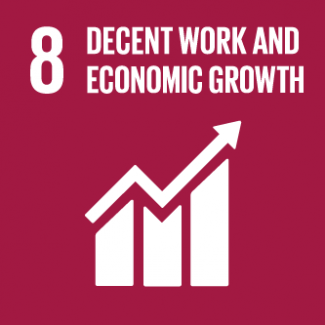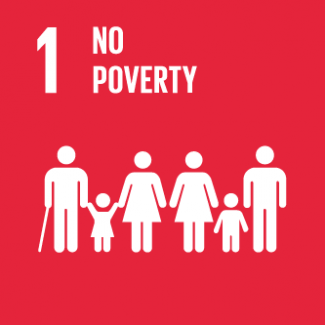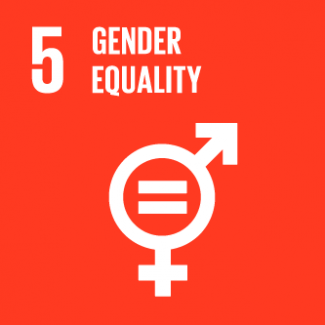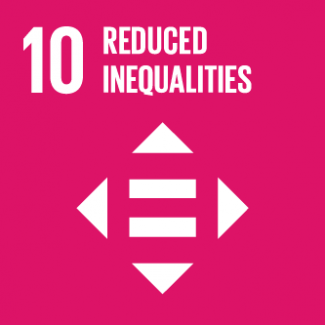Workforce connectivity platforms




Business Model Description
Develop online vocational talent marketplaces that connect companies with entry-level professionals applying for formal positions, enabling the inclusion of individuals from non-traditional backgrounds and train them for their first job.
Expected Impact
This initiative intends to reduce unemployment through digital solutions.
How is this information gathered?
Investment opportunities with potential to contribute to sustainable development are based on country-level SDG Investor Maps.
Disclaimer
UNDP, the Private Finance for the SDGs, and their affiliates (collectively “UNDP”) do not seek or solicit investment for programmes, projects, or opportunities described on this site (collectively “Programmes”) or any other Programmes, and nothing on this page should constitute a solicitation for investment. The actors listed on this site are not partners of UNDP, and their inclusion should not be construed as an endorsement or recommendation by UNDP for any relationship or investment.
The descriptions on this page are provided for informational purposes only. Only companies and enterprises that appear under the case study tab have been validated and vetted through UNDP programmes such as the Growth Stage Impact Ventures (GSIV), Business Call to Action (BCtA), or through other UN agencies. Even then, under no circumstances should their appearance on this website be construed as an endorsement for any relationship or investment. UNDP assumes no liability for investment losses directly or indirectly resulting from recommendations made, implied, or inferred by its research. Likewise, UNDP assumes no claim to investment gains directly or indirectly resulting from trading profits, investment management, or advisory fees obtained by following investment recommendations made, implied, or inferred by its research.
Investment involves risk, and all investments should be made with the supervision of a professional investment manager or advisor. The materials on the website are not an offer to sell or a solicitation of an offer to buy any investment, security, or commodity, nor shall any security be offered or sold to any person, in any jurisdiction in which such offer would be unlawful under the securities laws of such jurisdiction.
Country & Regions
Sector Classification
Technology and Communications
Development need
>Only 42.56% of households in Colombia have a computers and/or tablets and around and 73% have a mobile phone (1).
Policy priority
> Modernization law of 2019 intends to modernize institutions and focalize investments to facilitate the deployment of high cost infrastructure in the ICT sector. Auctions of the connectivity expectrum have taken place (2)(3).
Gender inequalities and marginalization issues
>Only 6.11% of women work in the ICT sector, without growth over the last years (5).
Investment opportunities
>The IT sector is expected to grow with prospects for U.S. companies derived from the Trade Agreement (4).
Key bottlenecks
> The main bottlenecks and obstacles include rural connectivity infrastructure development and deployment, access to technology and devices and skill development among less educated population.
Technology
Development need
>Low penetration of technology in companies: internet of things (14,8%), robotics (11,1%), 3D printers (4,8%), virtual reality (1,7%), Big Data (16,8%) and AI (9,7%). Only 16% of large companies as of 2017 sold through digital channels. (7)
Policy priority
>Modernization law of 2019 intends to modernize institutions and focalize investments to facilitate the deployment of high cost infrastructure in the ICT sector. Auctions of the connectivity expectrum have taken place (2).
Gender inequalities and marginalization issues
>Only 6.11% of women work in the ICT sector, without growth over the last years (5).
Investment opportunities
>Micro commerce is the sector that is growing the fastest in digital adoption in Colombia (+37%) Digital transformation and efficient management through Big Data and AI, digital economy adoption, digital and mobile banking (6).
Key bottlenecks
>The main bottlenecks and obstacles include capex intensive connectivity development, transport infrastructure lags and low skills and adoption of technologies.
Software and IT Services
Pipeline Opportunity
Workforce connectivity platforms
Develop online vocational talent marketplaces that connect companies with entry-level professionals applying for formal positions, enabling the inclusion of individuals from non-traditional backgrounds and train them for their first job.
Business Case
Market Size and Environment
USD 100 million - USD 1 billion
> Recruitment agencies charge 10%-15% of the first wage of a successful hire. Assuming a minimum wage hire (US $300) for 16.4M of unemployed and informal individuals this is a $740MUSD market. (8)
> Online Recruitment Market to Exhibit 7.1% CAGR by 2027 globally.
Indicative Return
> 25%
Top quartile IRR vcs investing in technology and AI according to pitchbook is 25.87% (9).
Investment Timeframe
Medium Term (5–10 years)
VC median exit time in 2017 was 8.2 years (10)
Ticket Size
USD 1 million - USD 10 million
Market Risks & Scale Obstacles
Capital - Limited Investor Interest
Market - Highly Regulated
Impact Case
Sustainable Development Need
> 5.3M or 21.4% of the economically active population in Colombia are out of a job and 14.1M are informally employed (12).
> 120-180 days is the average time a Colombian takes to find a job (13).
Gender & Marginalisation
> 28% of women and 31% of young professionals are unemployed, being those who have the hardest time finding a job (12).
Expected Development Outcome
> Connect highly needed talent to living wage jobs by making it easier for employers to find, validate and retain skilful workers while reducing barriers to entry for candidates from non-traditional backgrounds and shorten time to employment.
> Analyze how connectivity platforms and training can improve new employment generation.
Gender & Marginalisation
> Reduce unemployment gender gaps . In July 2020 unemployment rate for women was around 26% whereas for men it was around 16% (14).
Primary SDGs addressed

8.3.1 Proportion of informal employment in total employment, by sector and sex
8.5.2 Unemployment rate, by sex, age and persons with disabilities
52% formality in 2018 (15).
20.2% unemployment in July 2020 (15).
60% of formality by 2030 (15).
6.8% unemployment rate in 2030 (15).
Secondary SDGs addressed



Directly impacted stakeholders
People
Corporates
Gender inequality and/or marginalization
Indirectly impacted stakeholders
Public sector
Corporates
Outcome Risks
> Risk of increased automatization reducing current internal human resources personnel, temporarily increasing unemployment
> Broaden tax base and thus increase social spending: an increase of formal employment will include more tax payers in the system
Impact Risks
External risk: >Lag in connection infrastructure in rural areas and the popularization of digital hiring could lead to even further inequalities in unemployment
Drop-off risk: > lack of digital abilities and adoption from companies and users
External risk: >regardless of the existence of the marketplace, Colombia lacks a workforce with the right skills to fulfil certain companies requirements
Execution risk: >Technologies could result confusing for new users, reducing adoption rates
Impact Classification
What
Positive and significant outcome due to increased job placements.
Who
Underserved stakeholders that are currently overlooked for certain jobs and companies.
Risk
Failing to implement this initiative will perpetuate inequalities and unemployment in lower and less educated social groups.
Impact Thesis
This initiative intends to reduce unemployment through digital solutions.
Enabling Environment
Policy Environment
(Plan Nacional de Desarrollo): Generate services that help people acquire quality jobs, with an emphasis on groups with greater unemployment. Reduce job informality to 41.2%, contribute to connect 2 million job vacancies and reduce unemployment to 7.6%.(17)
(Empleo para la prosperidad): aims at facilitating labour insertion of vulnerable population through the strengthening of their transversal skills and access to employment opportunities.(18)
(Servicio público de empleo): Manages and promotes the Public Employment Services, with a quality approach through the timely and efficient operation of the network of providers in the field of articulation and integration of active labour market policies.(19)
Financial Environment
Financial incentives: IDB, Fundación Corona, Prosperidad Social and SECO, led the successful structuring of a social impact bond to transform the way of addressing the challenges of employability in Colombia and achieve greater cost effectiveness of employability projects for difficult to place populations.(19)
Fiscal incentives: Tax and contribution exemption for hiring young professionals for a year (120% reductions in obligatory payments for companies who hire them) (23).
Subsidies: Due to the pandemic, the city of Bogotá will subsidise companies who hire young people, women and adults over 50 years old (24).
Regulatory Environment
(The Law 2010 of 2019 (Law of economic growth)): generates Income tax reduction incentives to those companies that hire young workers who aspire to get their First Job. (20)
(Decree 2365 of 2019): this decree seeks to hire young professionals in public entities to foster public sector careers from an early stage (21).
(Law 1780 of 2016): this law incentivises hiring young professionals by exempting companies from contributing to compensation funds during the first year of the hire (22).
Marketplace Participants
Private Sector
Start-ups such as Catalyte a software engineering services company that uses data science to build technology workforces from non-traditional backgrounds, has raised +60MUSD in VC.(6)
Government
The national government is an important actor promoting reductions in unemployment.
Non-Profit
IDB, Fundación Corona, Prosperidad Social and SECO, led the successful structuring of a social impact bond to transform the way of addressing the challenges of employability in Colombia and achieve greater cost effectiveness of employability projects for difficult to place populations.(19)
Target Locations
References
- (1) MINTIC (2020) Indicadores básicos de TIC en los hogares. Accessed february 8th 2021
- (2) MINTIC (2019) ¿Qué es el Proyecto de Ley de Modernización del Sector TIC? Accessed february 8th 2021
- (3) Oxford Business Group (2020) - New ICT laws and attention to innovation increase Colombia's internet coverage. Accessed January 26 2021
- (4) International Trade Administration (2020) – Information and Communication Technology. Accessed January 26 2021
- (5) Semana (2018) Analítica de datos, una de las tecnologías con más futuro en el 2018. Accessed February 8th 2021
- (6) EMIS Insights (2020), Colombia ICT Sector Report 2021-2022
- (7) MINTIC (2018) Así usan la tecnología las mujeres en Colombia - Accessed February 8th 2021.
- (8) Larking (2019) - How much recruitment agencies charge? Accessed June 30th 2020.
- (9) Cottonwood vc (2018) Cottonwood Technology Fund listed by Pitchbook as one of the best performing VC funds with an IRR of 46% (Fund I). "10) Venture Beat (2017) – VC investing still strong even as median time to exit reaches 8.2 years Adley Bowden, PitchBook - Accessed February 8th 2021."
- (11) OECD (2018) -Private Equity Investment in Artificial Intelligence. Accessed February 8th 2021. "12) ElTiempo (2020) – 43,5 % de la población desocupada perdió el empleo por la pandemia. Accessed August 20th 2020. "
- (13) Actualísese (2019) – Cuánto se demora un Colombiano en promedio conseguir un empleo. Accessed May 30th 2020.
- (14) El Expectador (2021) El peso del desempleo en contra de las mujeres. Accessed February 8th 2021.
- (15) DNP (2018) Objetivos de desarrollo sostenible. Accessed February 8th 2021
- (16) DNP (2017) – Plan Nacional de Desarrollo
- (17) Prosperidad Social (2019) – Empleabilidad Prosperidad Social. Accessed May 22nd 2020.
- (18) ServicioDeEmpleo (2020) – Unidad del Servicio Público de Empleo. Accessed May 23rd 2020.
- (19) SIB.co (2020) – Programas de Bonos de Impacto Social en Colombia. Accessed May 23rd 2020.
- (20) LBX (2019) – Nueva Ley de Crecimiento económico. Accessed May 21st 2020.
- (21) Presidencia (2019) - Presidente Duque expidió decreto que reglamenta contratación en todas las entidades públicas de jóvenes sin experiencia laboral. Accessed February 8th 2021.
- (22) Senado de Colombia (2020) -Aprobado en primer debate proyecto que promueve incentivos para la contratación de jóvenes al sector productivo. Accessed February 8th 2021.
- (23) Forbes (2020) -Bogotá subsidiará a las empresas que contraten gente en medio de la crisis. Accessed February 8th 2021
- (24) DSA Russell Bedford (2020) INCENTIVOS TRIBUTARIOS POR LA CONTRATACIÓN DE JÓVENES MENORES DE 28 AÑOS. Accessed February 8th 2021
- (25) Dane (2020) Mercado laboral por regiones. Accessed February 8th 2021
- (26) Global News Wire (2020) Online recruitment market. Accessed February 8th 2021















